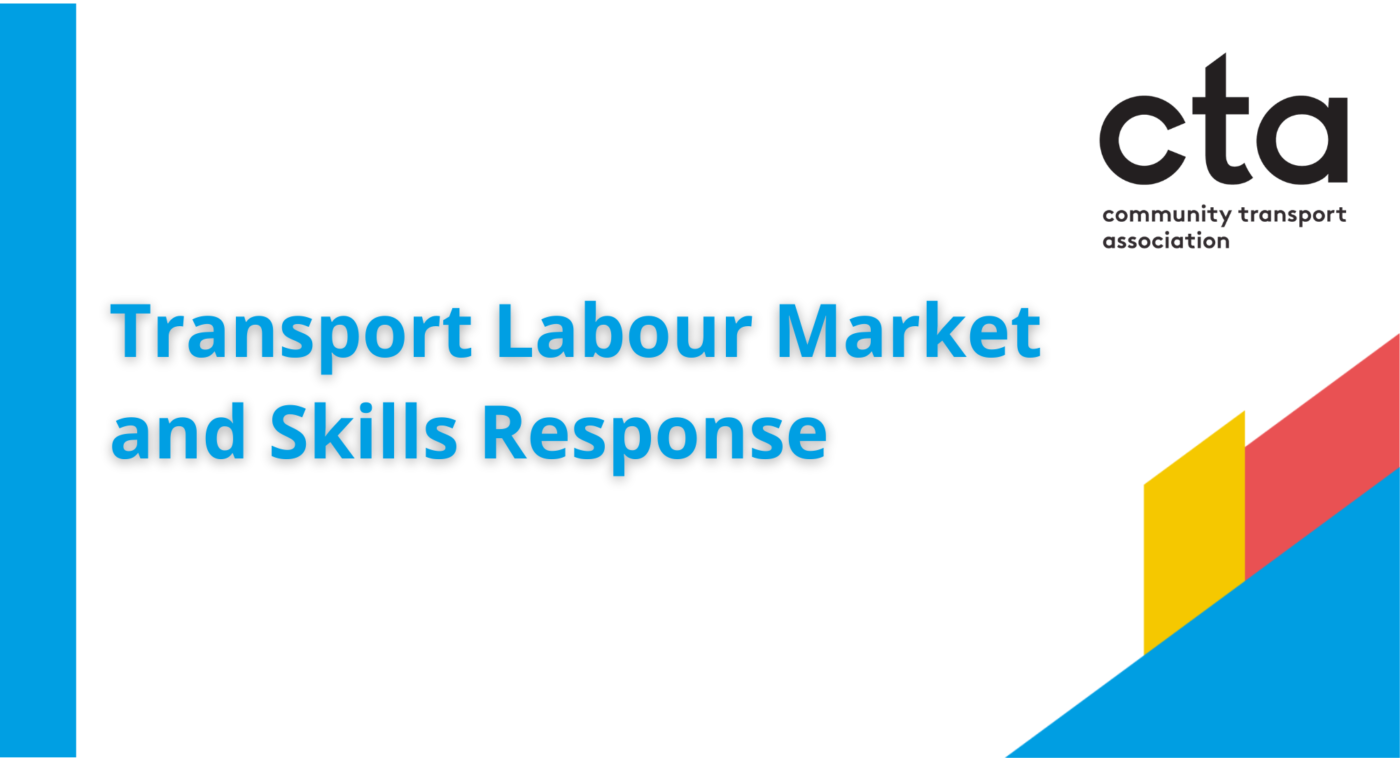-

Transport Labour Market and Skills Response
-
24th May 2022
-
-
by Caroline Whitney
Director for England
The Community Transport Association (CTA) recently took the opportunity to share with the Department for Transport and the Transport Employment and Skills Taskforce the views and ideas from the Community Transport Sector on current and future skills needed.
The Community Transport sector is facing similar challenges to the rest of the sector with growing difficulties in the recruitment and retention of its paid and volunteer workforce and limitations on the ability to fund training for or employ specialist staff. These challenges are having an impact on the ability of the sector to be resilient and to keep up with the rapidly changing technologies and opportunities within the Sector.
This call provided us with an opportunity to share the views from the CT Sector and work with stakeholders and be part of the solution.
The full submission can be viewed here – the key views and ideas from that were included within the submission were that;
- Community Transport faces a driver shortage which is compounded by current labour market trends, including being able to offer competitive salaries, losing drivers to commercial operators and the current legislation which only allows those that hold the B category on their licence to drive a permit minibus if they meet specific criteria.
- Community Transport often finds itself having to cross over between transport and social care. The drivers and other team members need to have a combination of skills outside of the typical transport to ensure that they can meet the social care needs of their passengers. There are limited opportunities for staff to gain skills in this area.
- Community Transport employees often must have knowledge on a range of specialisms as they are unable to employ specialist staff. The impact of this is that CT operators have the potential to be left behind or miss out on the application of new technologies as they do not have the resources to invest in the specialist workforce.
- Community Transport is well positioned to support the desire to recruit more young people into transport. Young people are making more ethical and social decisions within their employment and wider lifestyle choices. Community Transport is a viable option for young people who are looking for a job that contributes to their communities.
- Community Transport are succeeding in employing women in leadership roles with a ratio of male to female heads of community transport operators is 3:2.
- Community Transport has reach into all the under-represented groups that DfT and TEST aims to focus on to improve the diversity of the sector. Through this CTA can support TEST and Community Transport operators to engage with communities and utilise the direct link into communities effectively.
In Early June we will be following up with DfT to review how CTA and CT providers can be a partner in this work. This call is the start of the conversation and action, we will be involving CTA members as this moves forward. To find out more please email caroline.whitney@ctauk.org
-
-
- About CTA
- /
- CTA Membership
- /
- CTWeek24
- /
- Policy & Research
- CommunitySolutions: A Manifesto for the Next UK General Election
- Our Campaigning Guide for Community Transport
- Our Policy Work
- Join Our Mapping England Passenger Survey
- Aneurin Bevan Transport to Health
- Climate Action in Scotland
- conneCTing England Programme
- Mapping Scotland Project
- Mapping Wales
- Mapping England
- Tackling Loneliness in England
- Healthy Communities in Scotland
- /
- Advice & Support
- /
- Training
- /
- Events
- /